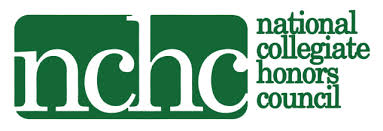Honors College Justice, Equity, Accessibility, Diversity, and Inclusion (JEADI) Statement
We acknowledge that the UNM Honors College promotes diversity. Within an institution of Higher Education in New Mexico, we have a responsibility to provide an inclusive and support space to foster success, as well as visibility and opportunity for all people. We are purposefully working for change and equity in the Honors College at the University of New Mexico.
We pledge to listen to, learn from, and support Black, Indigenous, and People of Color (BIPOC) include Hispanic & Latinx, Asian American, Pacific Islander, and Desi Americans (AAPIDA), as well as people of all genders, abilities, sexual orientations, and all cultures. We also acknowledge the difficult and painful history of violence and institutionalized racism against all minoritized groups and Native Nations.
We pledge to host discussions each semester on topics related to justice, equity, accessibility, diversity, and inclusion. These discussions will be open to all community members.
UNM Indigenous Peoples' Land and Territory Acknowledgement
Founded in 1889, the University of New Mexico sits on the traditional homelands of the Pueblo of Sandia. The original peoples of New Mexico - Pueblo, Navajo, and Apache - since time immemorial, have deep connections to the land and have made significant contributions to the broader community statewide. We honor the land itself and those who remain stewards of this land throughout the generations and also acknowledge our committed relationship to Indigenous peoples.
We gratefully recognize our history.
Developed by the Special Assistant for the American Indian Affairs to the UNM President in consultation with the Native American Faculty Council.
Approved and adopted by President Garnett S. Stokes February 2020
Labor Acknowledgement
At UNM, we respectfully acknowledge the traumatic history of forced labor of Black Americans who have advanced our country. We are indebted to the enslaved and exploited African Americans who established our U.S. infrastructure and economy, advanced civil rights, and continue to influence popular culture. We are obligated to continuously recognize historic and current systemic oppression and injustices placed on Black Americans. We are grateful to their ancestors; for without them we would not be where we are today.
JEADI Distinction
Requirements
- 12 credit hours
- At least 9 must be from UHON/HNRS approved course list
- 3 can be from USGDEIP list or UHON/HNRS
- 3 of the 12 credit hours must be upper division
- These courses do not need to be in addition to coursework already completed for Honors degree
- Students must complete one of the four Honors degree pathways in order to earn the JEADI distinction
Approved Courses
The Honors College will keep a running list of approved JEADI courses. The JEADI committee will maintain oversight of this course list. Contact: honorsjeadi@unm.edu



Social Media
For news, information, prizes and more fun stuff follow us on our social media!
Honors College Resources